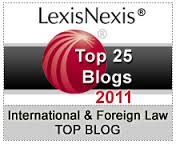This is a guest article for Scots Law Blog regarding the Scottish Independence Referendum, including discussion of recent advancements in the debate. Further blog posts welcome.
As the Scottish Independence referendum nears closer, major questions are being asked as to whether Scotland would really be independent from the United Kingdom. These questions have followed the news that many of the major national administration facets, such as banking and defence, will still be controlled by Westminster. So far, recently released evidence shows that Scottish citizens are likely to reject the August 2014 Scottish Independence referendum. Polls showed that at the highest point of popularity for the Scottish National Party (SNP), the political party championing Scottish Independence, support for the severance remained between 30% and 40%. SNP Leader and Scotland’s First Minister Alex Salmond is working hard to change these preliminary indicators, but critics are also highlighting the shortfalls in his arguments and actions. This article highlights some of the most recent advancement in the Scottish Independence debates.
In the SNP Corner
The Scottish National Party is exploring every avenue possible in order to increase the numbers for Scottish Independence. The SNP has even employed the assistance of an expert psychologist, who suggested that the party drop the word ‘independence’ in favour of the term ‘independent Scotland’. Apparently the former word suggests risk and may disencourage voters from supporting the Scottish Independence referendum, whilst ‘independent minded’ is seen as being more positive. It is not yet apparent whether this linguistic twist will make any significant changes to the Scottish Independence arguments.
Meanwhile, on the international front Alex Salmond has embarked on a four-day trade tour of Los Angeles with the primary objective of attracting California-based companies to Scotland. Scottish Independence would result in the current 23% corporate tax being reduced to 20% and tax reliefs of up to 100% would be offered to small business in an effort to encourage investment. According to Salmond, an Independent Scotland would benefit from investment and employment more than it would from income tax.
The Opposition Corner
Whether Scottish Independence will offer real severance from British power is one of the primary questions being asked. Preliminary plans for Scottish Independence reveal that Scotland will still use the British Pound as its currency and will also rely on the Bank of England as a lender. Furthermore, the national defence will also be shared and the Queen of England will still be the head of the Scottish State. According to the constitutional spokesperson of the Scottish Labour Party, this is evidence that the Scottish National Party has realised that the core policy of Scottish Independence is being rejected by citizens.
Penny Munroe is an avid writer in currency and finance related news and tips. Articles include selecting the best Forex trading systems to fundamental analysis trading advice.


